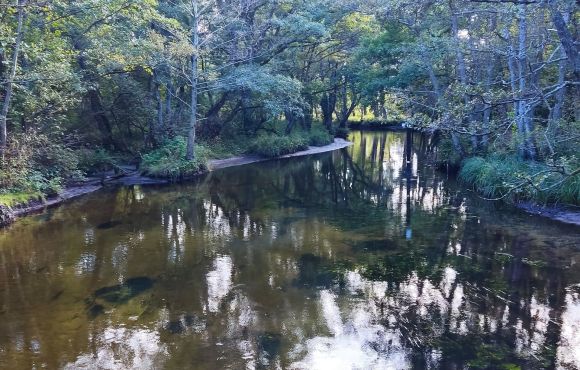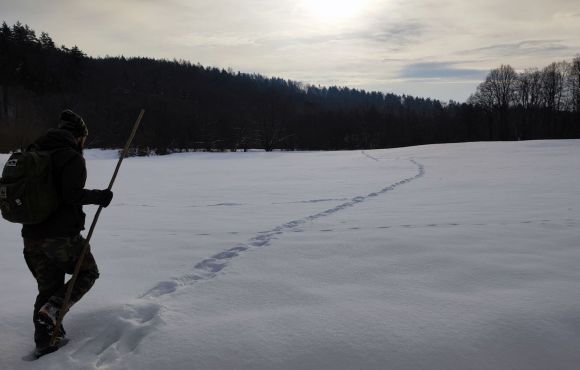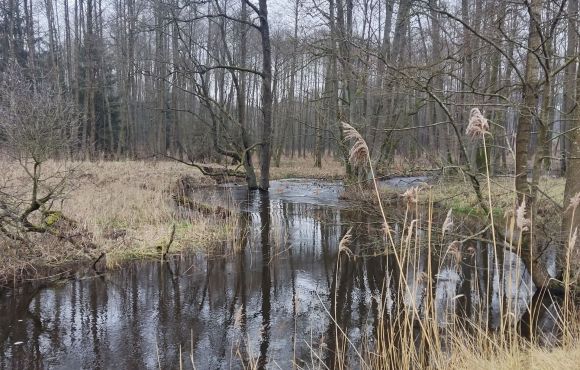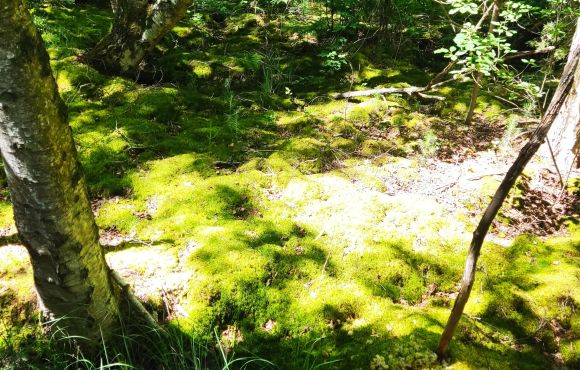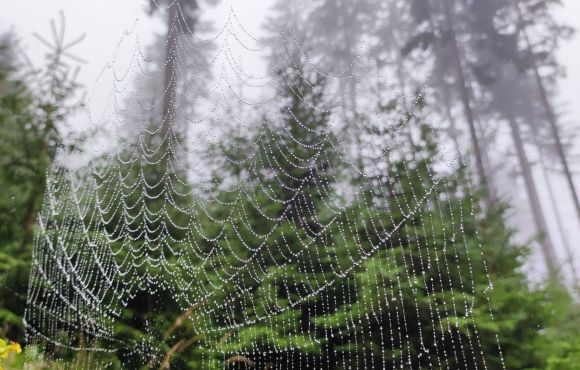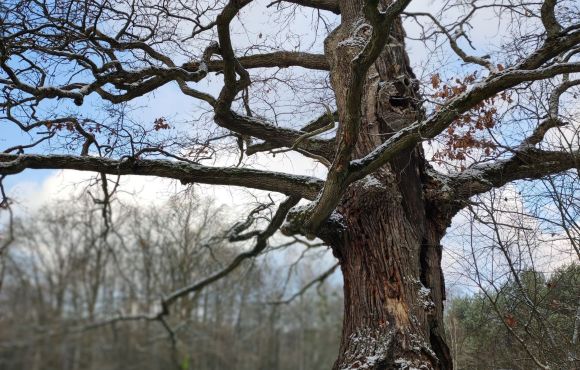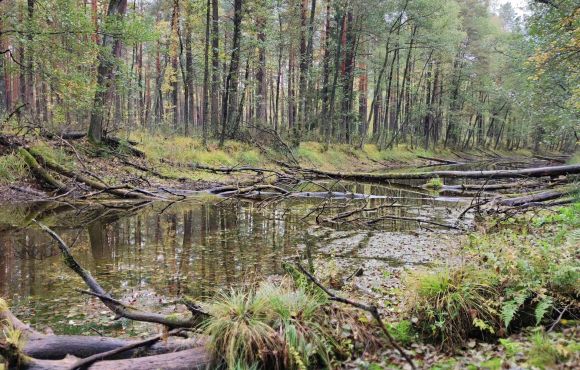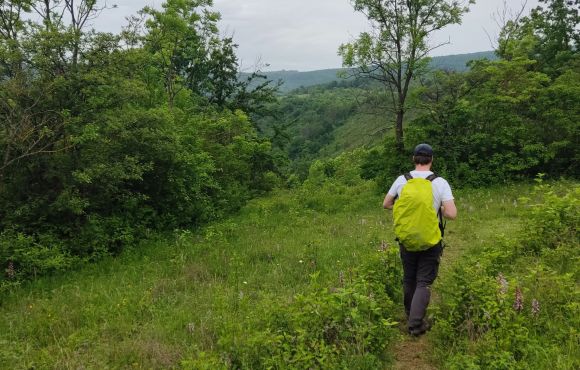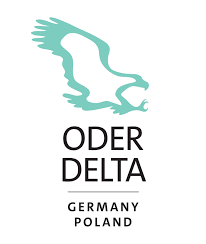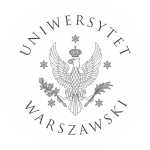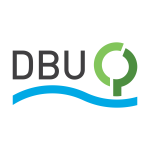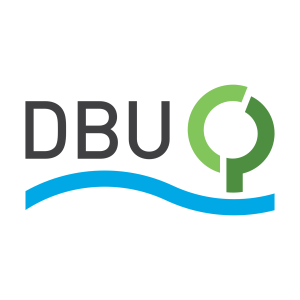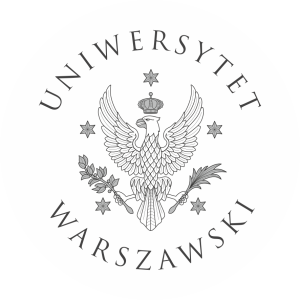The project Communication of rewilding in Poland is a project funded by the German Federal Foundation for the Environment, carried out in cooperation with the organisation Rewilding Oder Delta and the University of Warsaw. The main aim of the project is to introduce the Polish public to the topic of rewilding and the values associated with the presence of wild nature in the landscape in the context of achieving sustainable development goals.
A fundamental part of the work on the project was the development of a lecture that clearly presents the topic of rewilding, both for people with and without knowledge of environmental protection.
The final material, which is available in Polish, English and German, provides comprehensive information on rewilding as a nature conservation strategy and on the changes that have taken place in the environment as a result of human activity.
The introduction of terms such as naturalbaseline, shifting baseline syndrome and ecosystem services allow the listener to understand why rewilding is an important and innovative concept, and what benefits it brings to people and nature.
The material lasts 90 minutes and is available for download, further use, and to listen to for anyone interested.
Rewilding is a new approach to nature conservation that can build on and extend the achievements of existing environmental policy, offering the hope of recovering lost biodiversity and reintegrating humans with nature. In the project’s assumptions, the aim is to stimulate a wider debate on rewilding in Poland and to open the door to more advanced and integrated action in restoring wild nature to the landscape.
Project implementation
The practical part of the project consisted of the lecture presentation for MA students of the Interdisciplinary Studies of Environmental Protection at the University of Warsaw and a excursion to Kampinos National Park. The lecture, held in English, took place on 8 May 2023. Throughout its duration, students were asked to complete a before-and-after survey to assess the outflow of the content delivered during the lecture. The results of the questionnaires showed that the lecture had a visible impact on students’ attitudes and beliefs – their knowledge of rewilding as a conservation strategy increased significantly, and an increase in positive or very positive attitudes towards wildlife, the reintroduction of wildlife species and passive nature management strategies was also shown, especially among those whose opinion had not been formed before.
The lecture was complemented by an excursion to Kampinos National Park, led by Anna Kębłowska, M.Sc., an employee of the Science and Nature Monitoring Team of Kampinos National Park. During the tour, the students were able to experience first-hand what a natural and semi-natural landscape looks like, the differences between them and the challenges involved in their conservation. As the Kampinos National Park, abounds in both strict and active protection areas, and is a refuge for many wild animal species, it was a perfect place to supplement the theoretical knowledge gained by the students during the lecture with practical experiences that allowed the participants to understand in which direction rewilding activities could go and what differences exist between rewilding and classical forms of environmental protection.The excursion to the national park, was also designed to explore the role that contact with nature plays in environmental education.
Again, as during the lecture, students were asked to complete questionnaires, with the aim to find out whether contact with nature would influence students’ pro-environmental attitudes and improve their understanding of the processes that shape the natural environment. The results obtained from the questionnaires clearly showed that time spent in the nature is very important from the point of view of environmental education – participants declared a better understanding of both the functioning of the natural world itself, including the issues raised earlier in the lecture, as well as a greater sense of responsibility for protecting the environment and an increased willingness to take action for its benefit. Furthermore, the questionnaire revealed a significant change in participants’ attitudes towards sustainable practices, with a significant proportion expressing a greater commitment to adopting environmentally friendly behaviour in their daily lives.
The results from the project demonstrate that communicating about rewilding can be an important part of shaping pro-environmental attitudes and is an effective tool for building connections between people and nature. The responses of the participants indicate that communicating rewilding positively influences the attitude of the audience towards the presence of wild nature, wildlife, and can strengthen their support for restoration and conservation efforts. There is no doubt that rewilding with its optimistic agenda, its confidence and optimism for the future can represent a new quality in environmental education in Poland.
The non-profit organisation Rewilding Oder Delta is an independent association based in Glashütte, Germany, established in 2019. The association is the result of many years of cooperation between Polish and German environmental organisations and is part of the broad organisational network Rewilding Europe, which aims to implement regional rewilding concepts across Europe.
The area of operations of the Rewilding Oder Delta is a cross-border area of the Oder Delta, located between Poland and Germany, on the coast of the Baltic Sea, covering 450,000 hectares, including 70,000 hectares of the Szczecin Lagoon. The area is an ecologically valuable coastal region that is an important resting place for migratory birds and a wintering ground for hundreds of thousands of waterbirds and home to many rare animal species.
Rewilding Oder Delta focuses on the restoration of natural ecosystems, the protection of biodiversity and the expansion of the areas available to the wild nature. Central to the organisation’s activities is the protection of the natural course of the rivers in the Oder Delta and the restoration of the biotope network in the region. Educational activities are carried out on a large scale to promote the idea of rewilding, including the benefits that rewilding can bring to the people of the region. An integral part of this activity is the development of sustainable tourism in the region, based on high-quality nature tours, the promotion of local and ecological products and the principles of sustainable mobility.
Deutsche Bundesstiftung Umwelt
The German Federal Foundation for the Environment (DBU) was established in 1990 by the German federal authorities as an environmental foundation to support projects and initiatives in the fields of environmental protection, sustainable development and nature conservation. It is one of the largest foundations in Europe, based in Osnabrück.
DBU’s mission is to financially support projects that contribute to environmental protection, sustainable management of natural resources and the promotion of ecological innovation. The foundation awards grants to organisations, research institutions, companies and others that conduct projects that have a positive impact on the state of the environment, projects that are linked to current scientific findings on planetary boundaries, and the sustainable development goals adopted by the United Nations. Since its establishment, the foundation has supported more than 10,600 projects with a funding value of approximately €1.97 billion.
In 2007, the Polish-German scholarship programme, run in cooperation with the Nowicki Foundation, was incorporated into the International Scholarship Programme for Central and Eastern European Countries, of the DBU Foundation. Since then, the DBU Foundation has been awarding scholarships to young professionals graduating from Polish universities in the field of environmental protection. The scholarship programme, allows for internships in Germany at universities, companies, research institutes, authorities or NGOs. Its graduates have a unique opportunity to develop their professional skills, build international contacts and make a significant contribution to the field of environmental protection, also promoting the exchange of experience between Poland and Germany.
University Centre for Environmental Studies and Sustainable Development
University Centre for Environmental Studies and Sustainable Developmen (UCBS) is a university-wide organisational unit of the University of Warsaw, in parallel to the doctoral school. Established by the Senate of the University of Warsaw in 1992, the unit was created to provide an interdisciplinary environmental education programme and to support this kind of education in schools and regional education centres. The Faculty co-facilitates on an equality level with the 7 Faculties of the UW: Biology, Chemistry, Physics, Geology, Geography and Regional Studies, Law and Administration, and Economic Sciences.
Currently, UCBS runs two degree programmes: Interdepartmental Studies in Environmental Protection (or MSOŚ) first and second degree (in Polish) and Sustainable Development, an innovative study programme in sustainable development (taught in English). In 2019, UCBS became the first university to offer this type of degree course, addressing the challenges of environmental protection, in a rapidly changing world.
Academic programmes are organised in cooperation with significant international institutions such as The London Environment Centre, the European Commission for Environmental Education IUCN or Baltic University. Students of the faculty have been awarded prestigious Polish and foreign scholarships on numerous occasions, e.g. within the framework of the DBU scholarship programme in Germany, and can be proud of their multiple awards in university and national competitions for master’s theses, their participation in national and international conferences, their own publications or internships in foreign studies.
